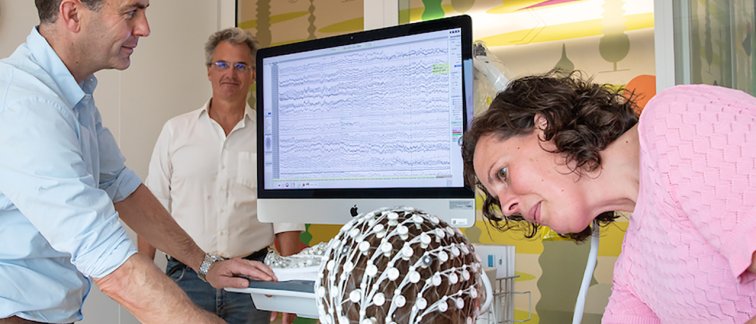The limited progress in finding adequate therapies for many developmental brain disorders is a frustration for scientists, clinicians and the industry, but of course most of all for patients themselves and their caregivers. Clinicians are facing increasing opposition to medical treatments all together due to the poor perspectives. Ironically, scientific progress has revealed ample opportunities for rational therapies often based upon existing medications, for instance in autism spectrum disorder. Their application, however, in the clinical setting is limited due to an incapacity to resolve the clinical heterogeneity of these disorders: how can we link an individual patient to the most optimal treatments and how do we confirm efficacy in an objective fashion?
NewTDec Consortium
To break this deadlock, the NewTDec consortium proposes to introduce a novel treatment-selection strategy together with patient-family organizations and other societal partners. This strategy brings together three innovative components offered by different NWA routes: (a) quantitative assessment of brain functions using predictive EEG ‘signatures’ for individual patients; (b) cellular assays using patient-own, stem-cell-derived neurons; and (c) standardized compound screening using new nanochip technology that supports high-throughput pharmacodynamics in human neurons. Together, these three components allow us to match patients with an optimal, individual therapy and to develop novel therapies for specific patient subgroups in the future.
New treatment options
As a proof-of-principle, we will develop such a pipeline strategy for autism spectrum disorder (ASD). We will test predictions from this pipeline and adopt personalized medicine scheme in a new clinical study, testing existing, safe FDA approved drugs that target components of ASD pathophysiology. Together, these studies provide new, rational treatment options that will greatly enhance prognosis and revive support for medical approaches to neurodevelopmental disorders, but also new EEG- and nanochip-based assays for future drug development and therapy design.



